
What a Kismat (2025) Bollywood Hindi Movie HD ESub
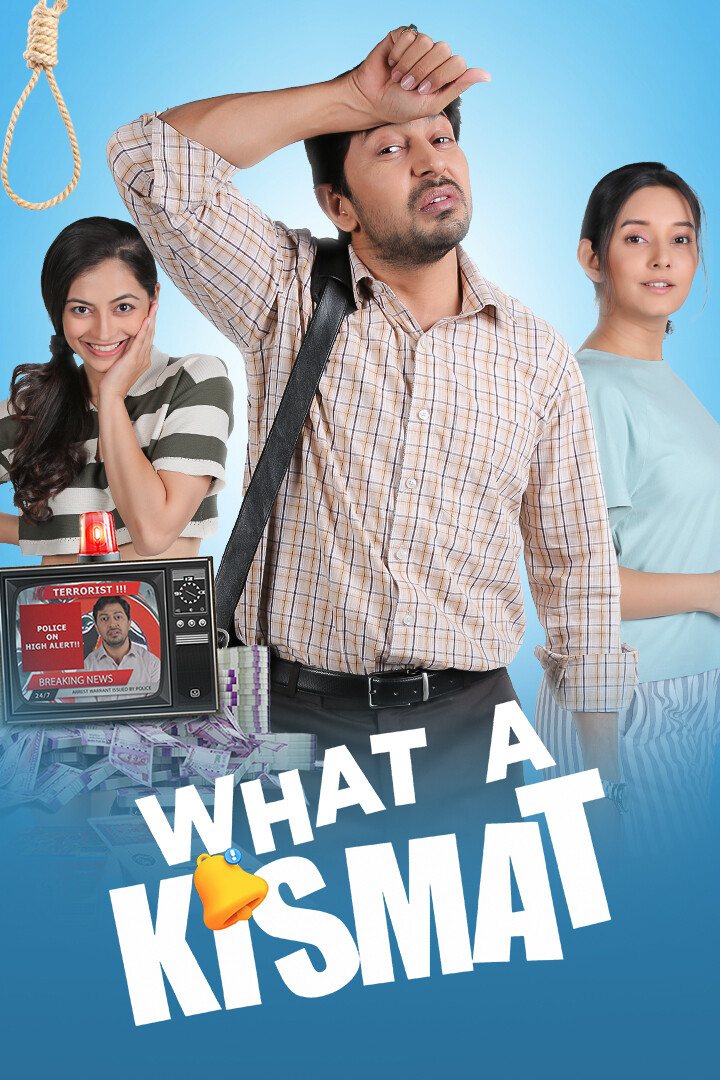
🎬 Thriller
🔍 Mystery
🎭 Drama
✓ Hindi + English dual audio
✓ English subtitles available
550MB
720p
1.2GB
2.4GB
6.0GB
📥 DOWNLOAD NOW
📦 Quality & File Details
⚙️ Technical Specifications
🎥 Video Details
Codec: HEVC (x265) / AVC (x264)
Resolution: 480p • 720p • 1080p • 2160p
Format: MKV / MP4
🎵 Audio Details
Languages: Hindi + English (Dual)
Subtitle: English (ESub) – Softsub
Channels: Stereo / 5.1 Surround
📸 Screenshots Preview
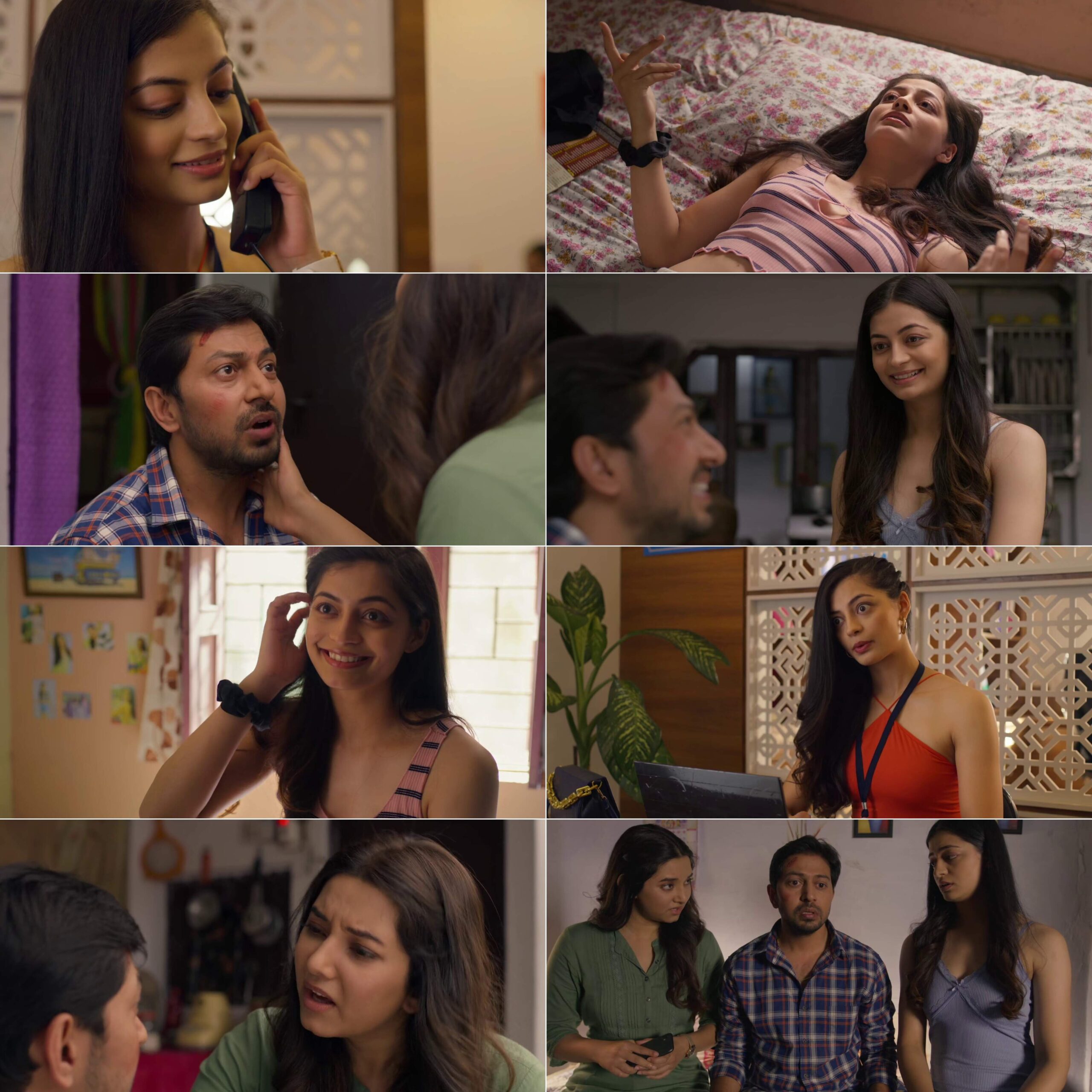
📖 Plot Summary / कहानी
What A Kismat (2024) — Bollywood Hindi Movie HD ESub
Complete movie details + full storyline (approx. 2000 words). Use for blog post or movie page.
Important Movie Details
- Title
- What A Kismat
- Release date
- 22 March 2024 (India).
- IMDb rating
- ~6.6 / 10 (IMDb listing for the title).
- Runtime / Movie length
- 1 hour 47 minutes (approx. 107 minutes).
- Language
- Hindi (original audio).
- Genre
- Comedy / Drama / Adventure
- Director
- Mohan Azaad
- Key cast
- Yudhvir Dahiya, Pankaj Kalra, Vaishnavi Patwardhan, Tiku Talsania, Bharat Dabholkar, Bhavana Balsawar, Ronit Agarwal (credits per listings)
- Where listed / streaming
- Listed on IMDb, Apple TV / streaming platforms and theatrical listings; available on some streaming platforms (check regional availability).
Sources: IMDb (title page & ratings), Apple TV listing, Times of India / Bollywood Hungama / BookMyShow. 5
Full Storyline
Chandu Prasad is the kind of man who keeps believing — not in grand destiny, but in small mercies: a stable job, a little respect at home, and a chance to make his family proud. He lives in a crowded, sun-baked neighbourhood of a mid-sized Indian town, balances a stuttering small business with long unpaid bills, and carries the soft, weary humor of a man who has learned to get up because there is no other choice. He adores his wife Meera, but the pressure is eating at both of them; Meera has started to drift, tired of promises that never quite arrive and of Chandu’s habit of gambling on “one big break” rather than steady work. Their relationship is warm but fragile; their marriage conversations have become negotiations and disappointment has become the default background music.
Chandu’s daily life is a parade of domestic mishaps and low-rent misfortunes. His small roadside stationery shop rarely breaks even; a loan shark named Pratap niggles at the edges of every week; neighbors whisper about Meera’s restless looks; and Chandu’s best friend Sunny — a chatty, over-optimistic would-be entrepreneur — keeps egging him on to buy lottery tickets, convinced that “kismat badal jayegi” (luck will change). Against this weary reality, Chandu’s optimism is less faith and more habit: he is, deep down, a romantic about tomorrow.
One rainy afternoon, Meera finally tells Chandu she is thinking of leaving — not with theatrical fury, but with a practicality that cuts deeper. She has found a small clerical job in the next town; it’s not glamorous, but it promises steady salary. She asks Chandu to choose: accept her decision and support it, or continue with the uncertain life that keeps pushing them into the red. Chandu promises to change; he vows to stop chasing quick wins and to repay the loans. When she hands him the closing letter — an ultimatum disguised as an ultimatum — he pockets it and walks out into the rain, feeling both foolish and determined.
That evening, Sunny drags Chandu to a roadside chai stall stocked with lottery agents. “Just one,” Sunny insists. “If it doesn’t work, abang — at least we had some masala chai.” In a half-joking, half-panicked decision, Chandu buys the ticket. He puts the stub inside his shirt pocket and forgets about it; life resumes its slow grind of minor humiliations and small kindnesses. But luck, as the film suggests early and often, is capricious — and sometimes it arrives while you are preoccupied with everyday sorrow.
A week later, in a scene that mixes slapstick with quiet human surprise, Chandu learns that his ticket has won a modest (but life-changing for him) sum. The sequence plays like a small miracle: the lottery agent announces the numbers, a crowd gathers, Meera and Chandu check the ticket, and for a moment they are suspended out of their ordinary life — above the bills and the grievances. The win doesn’t instantly solve everything, but it offers Chandu a window of possibility he has never seen before. He sees it not as an end, but as a chance to prove himself.
Chandu begins to pay off a few loans, fixes a leaking roof, and tries to make amends with Meera in small, sincere ways. Meera, moved but cautiously reserved, begins to soften; the two begin attending small family dinners again, and there is laughter in their home once more. The film allows this domestic healing to breathe — comic moments (Chandu attempting to cook to impress Meera) sit beside quiet, tender exchanges that remind us why the couple fell in love in the first place.
The plot takes a surreal turn when Chandu boards a local bus to deliver a repaired ceiling light to a client. An accidental bag mix-up during the crowded ride leads to a newspaper report wrongly identifying a victim of a minor bus blast as Chandu Prasad. The scene is handled with both careful humor and rooted realness: the reporter is chasing deadlines, the police officer wants a quick statement, and paperwork turns into authority. Soon the news cycles, and an unintended obituary with Chandu’s name appears in a local paper. For the audience, the error is excruciating, because we know Chandu is alive and sitting in his tiny room wondering why Meera hasn’t picked up the phone.
Chaos and comedy follow. Meera, unable to reach Chandu, rushes to the police station and finds out the truth: a bureaucratic mix-up. Before they can correct the record, however, a cunning local politician and an opportunistic property developer smell an advantage. They realize that a “dead man” can be useful: property claims can be fast-tracked, insurance paperwork can be manipulated, and a few crooked officials stand to gain. What had been a private life of small trials becomes, suddenly, evidence in a wider game of greed and gullibility.
Chandu wakes up to discover his identity has become negotiable. His bank accounts are frozen while officials sort through forged documents; a distant uncle claims rights over a small ancestral parcel; and Meera finds that strangers and relatives treat her differently — some with sympathy, others with predatory curiosity. The film handles these situations with the same comic touch that runs throughout: officials who insist on paperwork for the absurd, a psychiatrist who treats grief as a looping conversation, and nosy neighbours who feast on the spectacle. But beneath the comedy is a real tension — a man must fight not only for money, but for his name.
Refusing to become a passive victim, Chandu decides to ‘prove’ he is alive. He reappears in public — sometimes exaggeratedly (a dramatic entrance at the local temple, a comically staged appearance at a reception hall) — and yet the record-keeping machine is stubborn. The film mines this for both laughs and pointed critique: an administration that requires too many forms and an ecosystem that profits from human error. Chandu’s attempts at bureaucratic reclamation read like a series of vignettes that are as absurd as they are sadly true.
In parallel, the narrative follows Meera as she contends with social judgement, the pressure to remarry, and offers from people who want to exploit the situation. Her emotional arc is central: one minute she is devastated and terrified, the next she is fiercely protective of Chandu, resolving to fight for what is theirs. The film gives her agency; Meera is not a passive object of pity but an active, clever partner in the struggle. She uncovers a trail of forged documents, and with the help of an earnest junior journalist named Priya (a bright, persistent young reporter who smells a human story), they begin to expose the network of corruption.
The screenplay carefully balances sequences of exposing petty corruption with scenes of Chandu reinventing himself in small ways. He learns the idiocy of grand gestures and discovers the dignity of incremental change: opening his little stall again, helping neighbors, and volunteering at a youth center. His lottery money, once earmarked for a dramatic ‘fix,’ gets used to fund local repairs and a small community program. This change in priorities is the heart of the movie: Chandu’s luck was never only about money; it was about finding purpose beyond the ledger.
The antagonists — a collusive group of local officials and businessmen — raise the stakes when they attempt legal tricks to declare Chandu dead permanently (a sinister but bureaucratically plausible move). Tension rises as Chandu and Meera navigate courts, police files, and media leaks. The movie stages a courtroom sequence that plays like a satirical dance: foolish lawyers, dramatic witnesses, and a hard-nosed judge who demands proof beyond the theatrical. The courtroom is used more as a social mirror than as a legal battleground — the film critiques systems that undervalue human life in favour of paperwork.
Side characters add color and warmth. Sunny remains an unshakable friend — a comic support who occasionally bungles but always means well. An elderly neighbor, Dadi, provides counsels of stubborn wisdom, and a kindly policeman named Inspector Awasthi becomes an unexpected ally after seeing the human cost of the case. Priya’s reporting brings public attention, and a local NGO lawyer offers procedural help. Tiku Talsania’s comic timing brings light relief in tense scenes, while Bharat Dabholkar adds weight as an establishment figure who is not entirely villainous.
The film reaches its emotional peak when Chandu, instead of demanding revenge, organizes a community function to which all parties are invited — including the very men who tried to profit off his ‘death’. In a carefully staged sequence, Chandu publicly forgives minor transgressions but exposes the larger fraud to the crowd with the help of Priya’s reporting. The twist is satisfying: the legal evidence is assembled not through a single hero, but through community pressure, media scrutiny, and the stubborn truth of everyday witnesses.
The final act is both comic and tender. The property deals are broken, the forged papers rescinded, and the corrupt officials face inquiries. Chandu and Meera, their marriage tempered by crisis, choose a new beginning — not dramatic, but honest. Chandu invests his remaining lottery winnings in a small community center that provides vocational training; Meera accepts her new job but keeps one foot in the town, showing that compromise and partnership can co-exist. The film closes with a neighborhood celebration: laughter, songs, and a sense that life, for all its absurdities, continues with a newfound clarity.
Tonally, What A Kismat walks a line between broad comedy and humanist drama. The screenplay uses humor to defuse the heavy bureaucracy and greed it criticizes, but it never punches down — the laughter is compassionate. Director Mohan Azaad (credited) keeps scenes brisk, allowing performances to breathe; the cinematography favors warm, natural tones to root the film in a lived-in world. The music and background score underscore emotional beats without overpowering them, and the editing balances pace and space so the audience can laugh and then, quickly, feel the weight of a human moment.
The film’s message is simple but resonant: luck — “kismat” — is less a jackpot and more a series of choices. Chandu’s arc from desperate dreamer to responsible, community-minded man suggests that fortune is not merely given; it is built, protected, and sometimes reclaimed with the help of others. This moral does not come as a lecture but as the natural culmination of characters who learn to see one another clearly.
In its last scene, Chandu stands at the doorway of the small center he opened, watching kids practice skills, couples talk quietly, and neighbors share tea. Meera joins him; they exchange a look that says more than any dialogue could. The camera pulls back to reveal the street where the movie began — the same lanes, the same small dramas — but now lit by the quiet consolation that sometimes, when luck turns, it carries you toward a life worth living, not just a bank balance.
Final note: The film mixes real-world satire with gentle warmth, and though it occasionally leans on predictable beats, it remains delightful because of its performances, small human truths, and an ending that privileges dignity over sensationalism. For viewers who enjoy grounded comedies with heart, What A Kismat offers a satisfying combination of laughs, tears, and a reminder that sometimes the best fortune is the one you create.
© 2025 – All Rights Reserved | Enjoy your download! 🎬









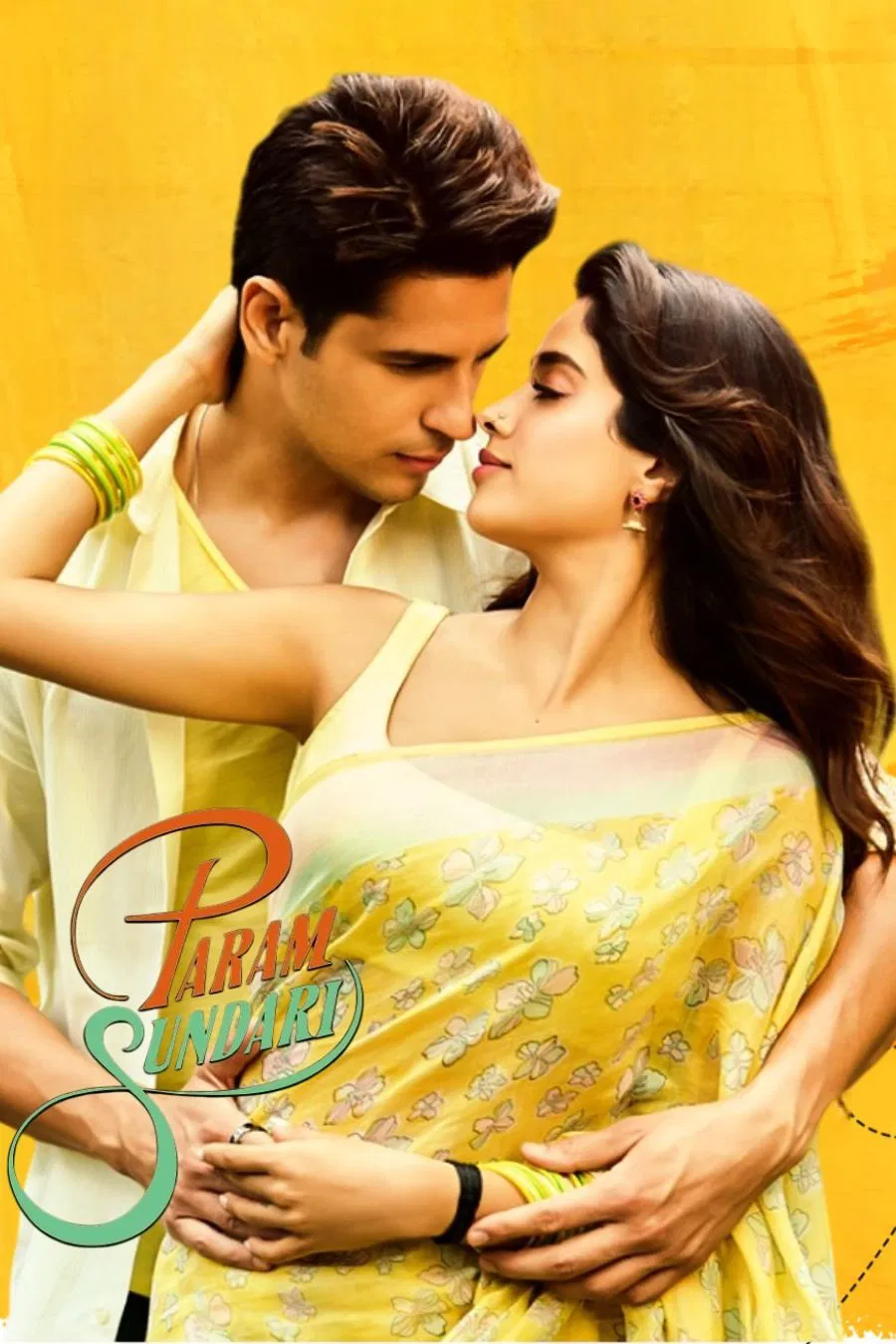
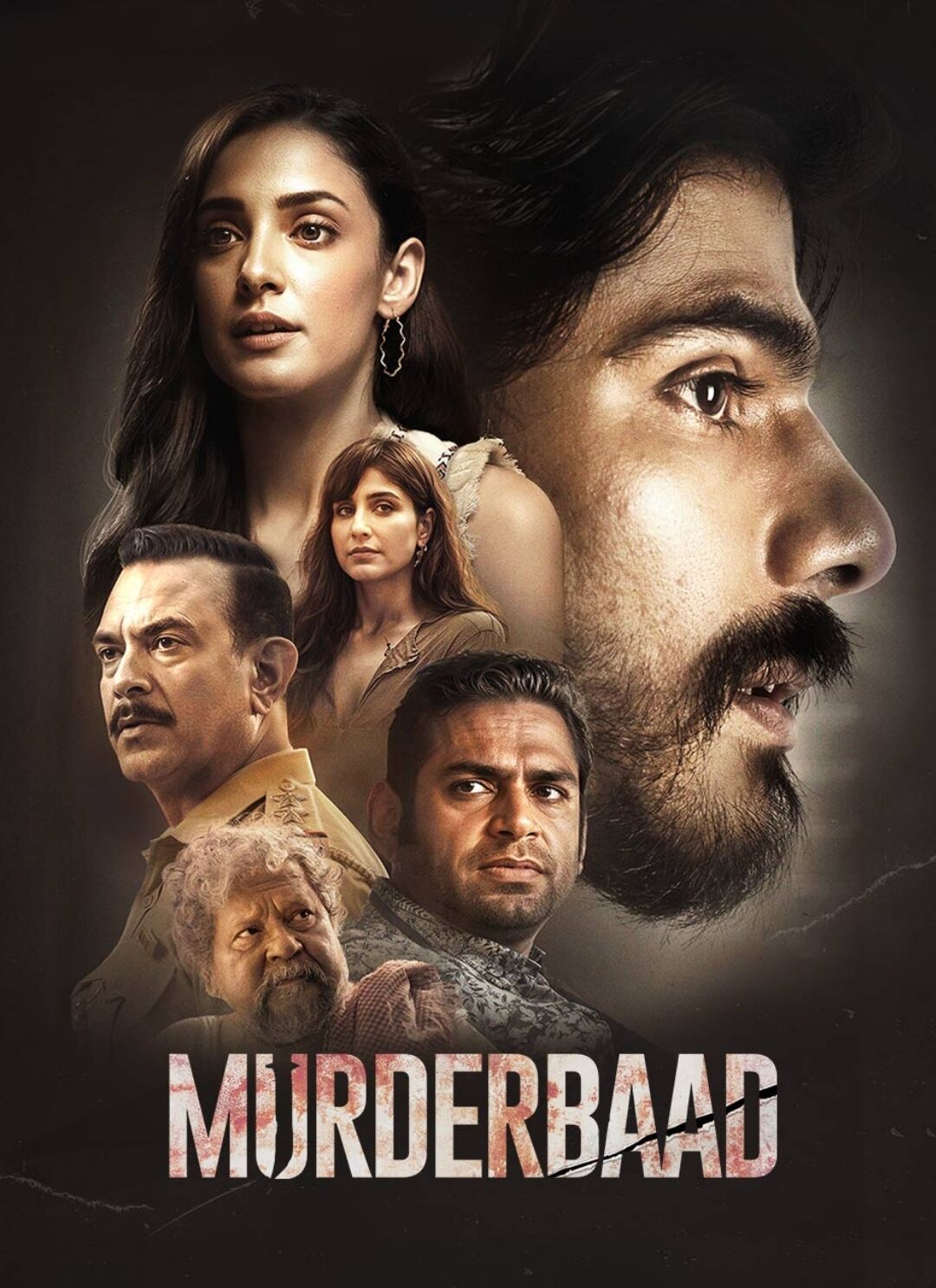




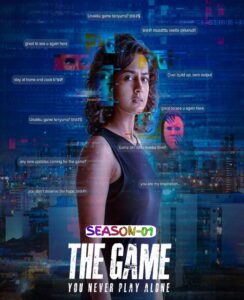




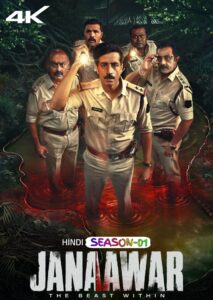

Post Comment